Table of Contents
Qatar’s oil and gas sector forms the backbone of its economy, accounting for approximately 60% of the country’s GDP. Qatar is also one of the top three LNG exporters globally, alongside the United States and Australia. The country accommodates the world’s third-largest proven natural gas reserves, primarily concentrated in the offshore North Field.
The largest oil and gas companies in Qatar include state-owned QatarEnergy, WOQOD, Industries Qatar, and Nakilat. Also, leading international oil companies such as ExxonMobil, TotalEnergies, and Shell have decade-long partnerships with Qatar oil and gas sector.
As the global energy landscape transitions toward cleaner fuels, Qatar continues to double down on liquified natural gas (LNG), investing heavily in expansion and long-term supply agreements across Europe and Asia.
In this blog we’ll highlight the Top 10 Oil and Gas Companies in Qatar that are shaping the future of the nation’s energy sector. The companies are ranked according to the latest revenue generated in the year 2025.
List of Largest Top 10 Oil and Gas Companies in Qatar (2025)
Company | Founded | Expertise Area | Latest Revenue (USD billion) |
|---|---|---|---|
QatarEnergy | 1974 | Oil & Gas Production | 43.03 |
Qatar Fuel (WOQOD) | 2002 | Fuel Distribution, LPG, Retail | 7.68 |
Industries Qatar | 2003 | Petrochemicals, Fertilizers, Steel | 4.62 |
Nakilat | 2004 | LNG Shipping | 1.24 |
North Oil Company (Qatar) | 2017 | Offshore Oil Production | 0.27 |
Gulf Drilling International (GDI) | 2004 | Onshore & Offshore Drilling | Subscribe Qatar oil and Gas Database |
Shell Qatar | 2002 | Integrated Energy | Subscribe Qatar oil and Gas Database |
ConocoPhillips Qatar Limited | 2004 | Oil & Gas Exploration | Subscribe Qatar oil and Gas Database |
Exxon Mobil Qatar Limited | 1990 | Oil & Gas | Subscribe Qatar oil and Gas Database |
TotalEnergies EP Qatar | 1936 | Oil & Gas Exploration | Subscribe Qatar oil and Gas Database |
40+ reviews
Find the Latest Oil & Gas Production Projects in Middle East Region with Ease
Gain exclusive access to our industry-leading database of oil and gas opportunities with detailed project timelines and stakeholder information.
Collect Your Free Leads Here!
No credit cardUp-to-date coverage
Joined by 750+ industry professionals last month
QatarEnergy
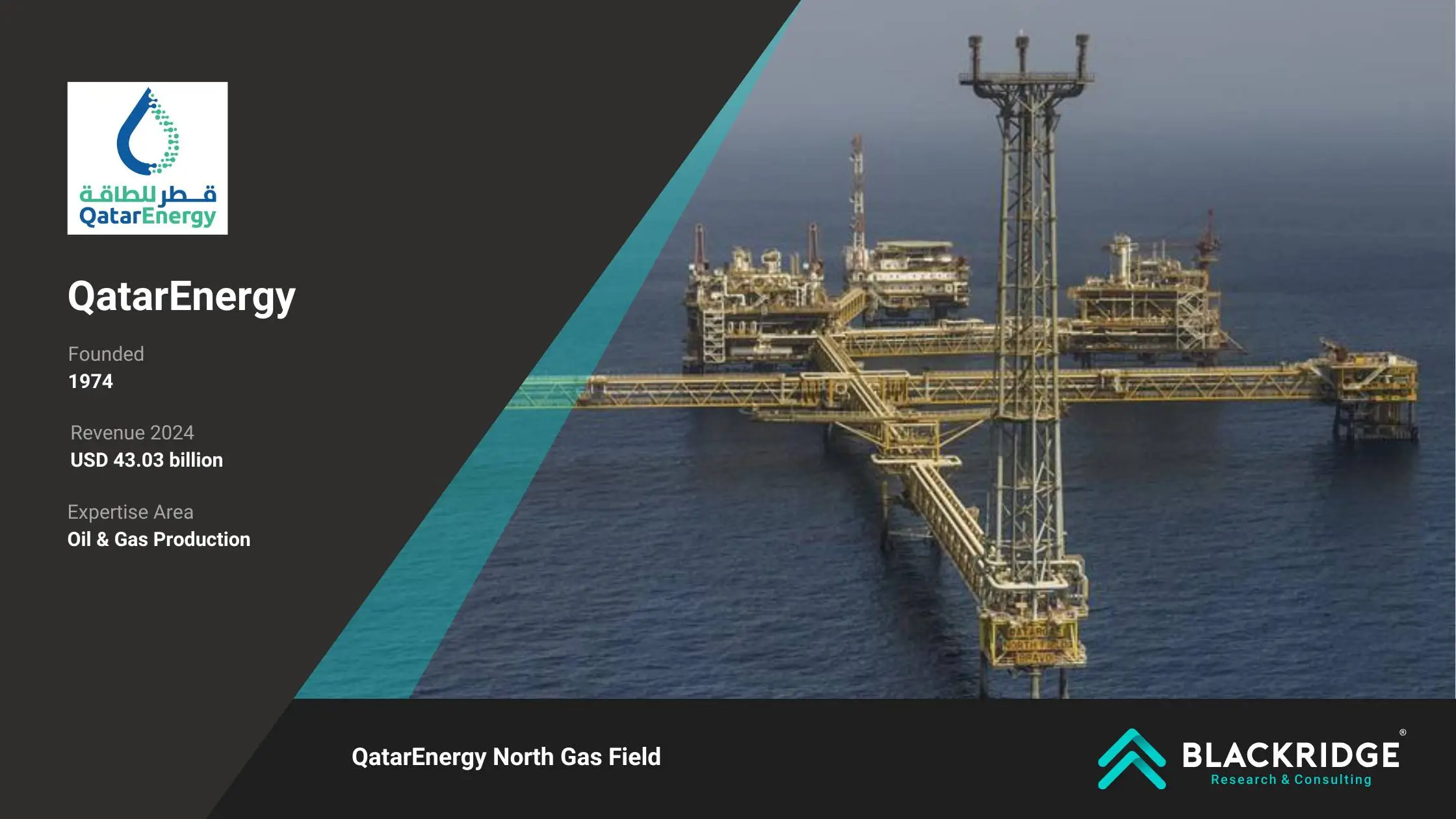
QatarEnergy (formerly Qatar Petroleum) is Qatar’s state-owned oil and gas company that manages the nation’s vast hydrocarbon resources. The company is responsible for all aspects of the oil and gas sector, including exploration, production, refining, transport, and storage.
QatarEnergy operates in close coordination with state planning agencies and regulatory bodies. President and CEO Saad Sherida al Kaabi, who is also the Minister of State for Energy Affairs, leads the company’s operations. By joining the US-Qatar Business Council QatarEnergy seeks to expand its services to the growing global market.
One of Qatar Energy’s most valuable assets is the North Gas Field, the largest non-associated gas field in the world, with over 900 trillion standard cubic feet of recoverable gas. Offshore oil production is also significant, with key fields like Idd El-Sharqi, Maydan Mahzam, and Bul Hanine producing high-quality crude oil and associated gas. Onshore, the historic Dukhan Field has been a vital production site since the first oil shipment in 1949.
Key Operations and Projects
Gas-to-Liquids (GTL):
Pearl GTL (with Shell): Largest GTL plant globally, converting 1.6 billion cfpd of gas.
Oryx GTL: Produces 34,000 barrels/day, with plans to expand to 100,000 b/d.
Refining & Petrochemicals:
QatarEnergy’s refinery in Mesaieed processes over 100,000 barrels/day.
A new petrochemical complex is being developed in Ras Laffan with Chevron Phillips, featuring the Middle East’s largest ethane cracker (1.9 million tons/year).
Exploration Partnerships:
EPSA and DPSA agreements have been signed with global companies such as ExxonMobil, Shell, Total, CNOOC, Maersk, and Anadarko.
These partnerships have led to major developments in fields like Al Shaheen, Al Khaleej, and Al Karara.
Infrastructure & Storage:
Halul Island: A key crude oil export hub with over 4 million barrels of storage capacity.
Equipped with a heliport, desalination plants, a harbor, and residential facilities for staff.
Pipeline & Domestic Gas Projects:
Dolphin Energy: Supplies natural gas via pipeline from Qatar’s North Field to the United Arab Emirates (UAE) and Oman.
Al-Khaleej Gas Project (AKG): Supplies 2 bcf/day to local industries.
Barzan Gas Project: Produces 1.4 bcf/day of sales gas for power generation.
Future Developments:
North Field Expansion: Set to raise LNG capacity from 77 to 110 MTPA.
Bul Hanine Redevelopment: Aims to double the current offshore oil output and extend the field’s life.
Some of the largest subsidiaries of QatarEnergy:
QatarEnergy LNG
QatarEnergy LNG is the world’s largest producer of liquefied natural gas (LNG), with an annual production capacity of 77 million metric tonnes. Established in 1984 and rebranded from Qatargas in 2023, the company plays a pivotal role in Qatar’s dominance in the global LNG market. QatarEnergy LNG operates 14 LNG trains, including six mega trains with a capacity of 7.8 MTPA each, and manages key upstream operations in Ras Laffan.
QPSPP
Qatar Petroleum for the Sale of Petroleum Products Company Limited (QPSPP) is a wholly owned subsidiary of QatarEnergy, established under Decree Law No. (15) of 2007. QPSPP is responsible for the marketing and sale of designated petroleum products, including crude oil, refined products, and transportation fuels produced in the State of Qatar.
In September 2025, QatarEnergy awarded ADES Holding a four-year offshore drilling services contract for the Aquamarine Driller jackup, with options to extend for up to three additional years. The total value of the firm and optional extensions is estimated at USD 215 million.
Qatar Fuel (WOQOD)
.webp)
Qatar Fuel (WOQOD) is Qatar’s sole downstream oil distribution and marketing company, established in 2002 by Emiri Decree No. 5. It operates as a publicly listed joint stock company on the Qatar Stock Exchange. WOQOD was formed through the transfer of assets from QatarEnergy’s subsidiary, the National Oil Distribution Company (NODCO), which previously handled refined fuel distribution from its Abu Hamour depot.
Qatar fuel company is responsible for providing various fuel types, including gasoline, diesel, and aviation fuel, in addition to specialized services such as bunkering, LPG distribution, and the development of branded service stations across the country. WOQOD also contributes to non-fuel services like vehicle inspection and marine services in Qatar.
Subsidiaries of WOQOD:
Qatar Jet Fuel Company (Q-JET): Supplies aviation fuel at Qatari airports.
WOQOD Vehicle Inspection (FAHES): Manages technical vehicle inspection services.
WOQOD Marine Services: Supports maritime fuel operations.
WOQOD International for Foreign Investment: Manages the company’s investments abroad.
Industries Qatar
Industries Qatar Q.P.S.C. (IQ) is one of the largest oil and gas-related industrial conglomerates in Qatar, operating in the downstream and midstream sectors. The company was established in 2003 and is majorly (51%) by QatarEnergy.
IQ plays a vital role in transforming Qatar’s vast hydrocarbon resources into high-value petrochemicals, fertilizers, and steel products. IQ is also one of the most valuable public companies in the country by market capitalization.
Industries Qatar has a diverse portfolio of wholly owned subsidiaries and strategic joint ventures. The group’s products are critical for global agriculture, construction, manufacturing, and energy sectors.
Key Subsidiaries & Joint Ventures:
QAPCO (80%) – Partnered with TotalEnergies.
QAFAC (50%) – Partnered with OPIC, LCY Group, and International Octane.
QAFCO (100%) – Formerly a joint venture with Yara.
Qatar Steel (100%) – One of the leading steel producers in the GCC.
Nakilat
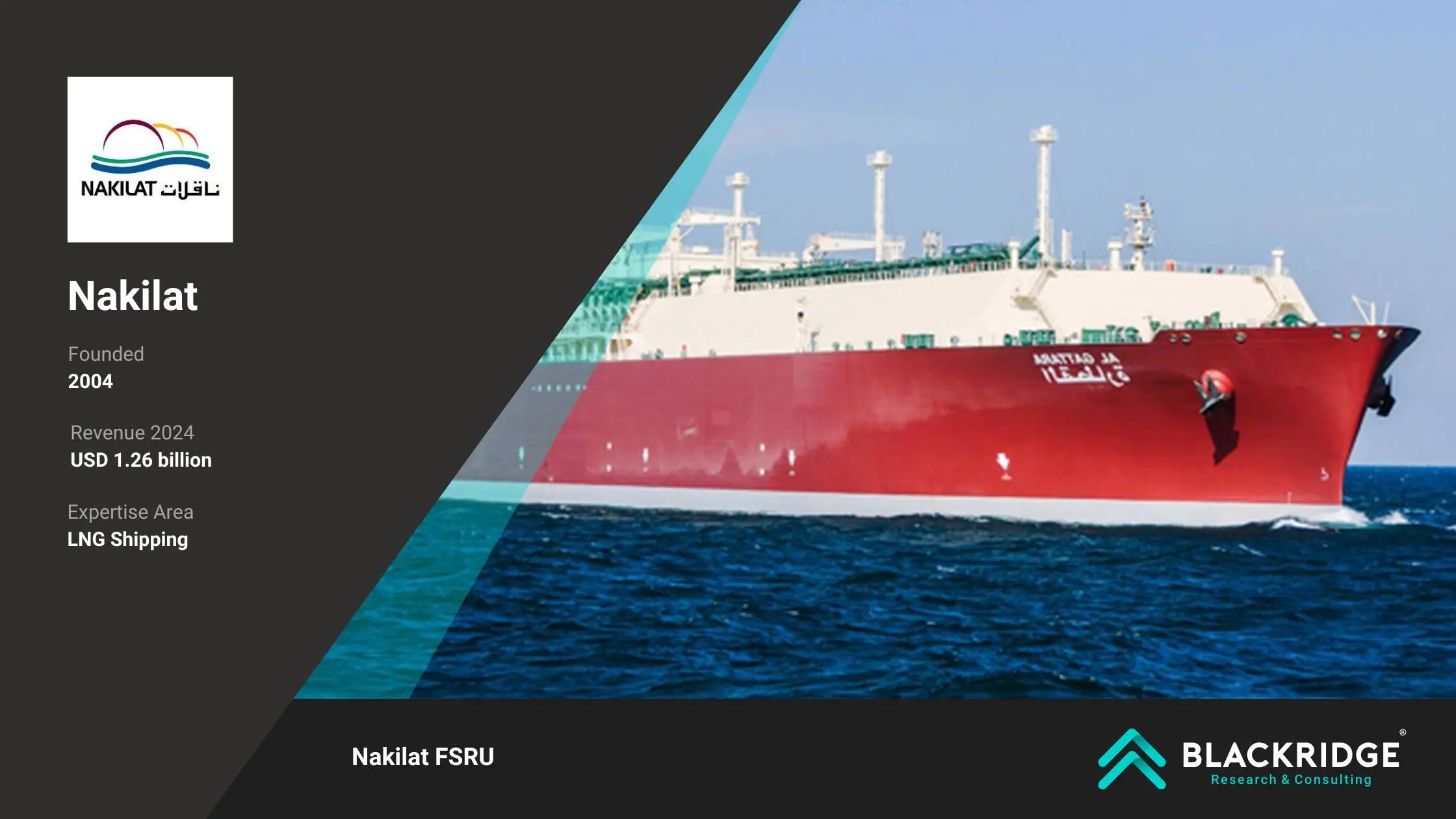
Qatar Gas Transport Company Limited (Nakilat) is one of the largest maritime and LNG shipping companies in the world, serving as a critical link in Qatar’s liquefied natural gas (LNG) supply chain. Nakilat has a fleet that includes 69 LNG carriers and holds the title of the largest owner of LNG vessels globally, accounting for about 12% of the world’s LNG shipping capacity.
Nakilat also provides a wide array of marine and shipyard services through strategic joint ventures with Qatar Shipyard Technology Solutions and Qatar Fabrication Company (QFAB).
The LNG shipping company also operates ship repair and offshore fabrication facilities at the Erhama Bin Jaber Al Jalahma Shipyard in Ras Laffan. Nakilat continues to diversify its services through vessel support units, marine logistics, towage, and agency services across Qatari ports.
Fleet Overview:
69 LNG carriers
24 conventional ships (145,000–170,000 cbm)
31 Q-Flex (210,000–217,000 cbm)
14 Q-Max (263,000–266,000 cbm)
2 LPG carriers
1 Floating Storage Regasification Unit (FSRU)
25 tugs and support vessels
Ship Management & Operations:
Nakilat Shipping Qatar Ltd. (NSQL) operates:
25 LNG carriers
2 LPG carriers
1 FSRU (jointly owned with Excelerate Energy, USA)
On February 10, QatarEnergy announced the first award in the second batch of long-term chartered LNG carriers (TCPs) under its fleet expansion project. The award includes 25 new LNG vessels, each with a capacity of 174,000 cubic meters, to be fully owned by Nakilat and chartered to QatarEnergy affiliates.
These carriers will be built at South Korean shipyards. The company’s total fleet is expected to grow to 112 vessels upon completion of ongoing FPSO projects.
North Oil Company Qatar
.webp)
North Oil Company (NOC), a joint venture between QatarEnergy (70%) and TotalEnergies (30%). The company is tasked with redeveloping and maximizing output from the Al Shaheen oil field over 25 years.
Located off Qatar’s northeast coast, Al Shaheen is one of the largest and most technically complex offshore oil fields in the world. The oil field accounts for about 45% of Qatar’s oil production, with an output of approximately 100 million barrels annually.
Development of the field began in the mid-2000s, reaching 169 wells and 21 offshore facilities by 2007. The production peaked at 400,000 barrels per day. By 2010, cumulative oil output surpassed 1 billion barrels, and by 2013, the field featured 220 wells and 24 facilities.
To sustain and enhance output, NOC is currently executing two major expansion projects, Gallaf and Ruya.
Gallaf, the first phase, involved the installation of eight platforms and associated pipelines in three batches, culminating in the achievement of first oil from the final batch in December 2024.
Ruya, meaning “vision” in Arabic, will follow Gallaf with the planned installation of nine to ten new platforms and debottlenecking pipelines, also delivered in phases.
On May 21, 2025, ADES Holding Company, a subsidiary of the Saudi-based ADES Group, announced it has secured a multi-year contract extension for one of its jack-up rigs with North Oil Company (NOC). This extension strengthens ADES’s long-term partnership with NOC and underscores the rig contractor’s position in the Qatari offshore drilling market.
Separately, on February 23, 2025, EnerMech Pty. Ltd. confirmed it had been awarded a five-year extension to its existing contract with NOC for work in the Al Shaheen field. The scope of work under this renewed agreement includes bolt tensioning and torquing, pipe freezing, and technical training.
Gulf Drilling International (GDI)
.webp)
Gulf Drilling International (GDI) is the first onshore and offshore oil and gas drilling company in Qatar. Founded in May 2004, GDI was initially established as a joint venture between QatarEnergy (then Qatar Petroleum) and Japan Drilling Company (JDC). Over the years, the company transitioned to full Qatari ownership, becoming a subsidiary of Gulf International Services (GIS) in May 2014.
By 2019, GDI had formed a joint venture with Seadrill Limited, known as GulfDrill, to support QatarEnergy’s North Field Expansion Project. This strategic partnership initially involved three high-spec jack-up rigs, West Tucana, West Castor, and West Telesto.
In 2024, marking its 20th anniversary, GDI achieved a major milestone by acquiring Seadrill’s share in GulfDrill, making it a wholly owned subsidiary. This acquisition made GDI the largest jack-up rig operator in Qatar.
As of May 2025, GDI operates a fleet of 12 offshore jack-up rigs, 7 onshore rigs, and 3 lift boats, supported by a skilled workforce of approximately 2,000 employees. The company continues to evolve as a key player in Qatar’s upstream drilling sector, delivering high-performance, safe, and sustainable drilling operations.
Shell Qatar
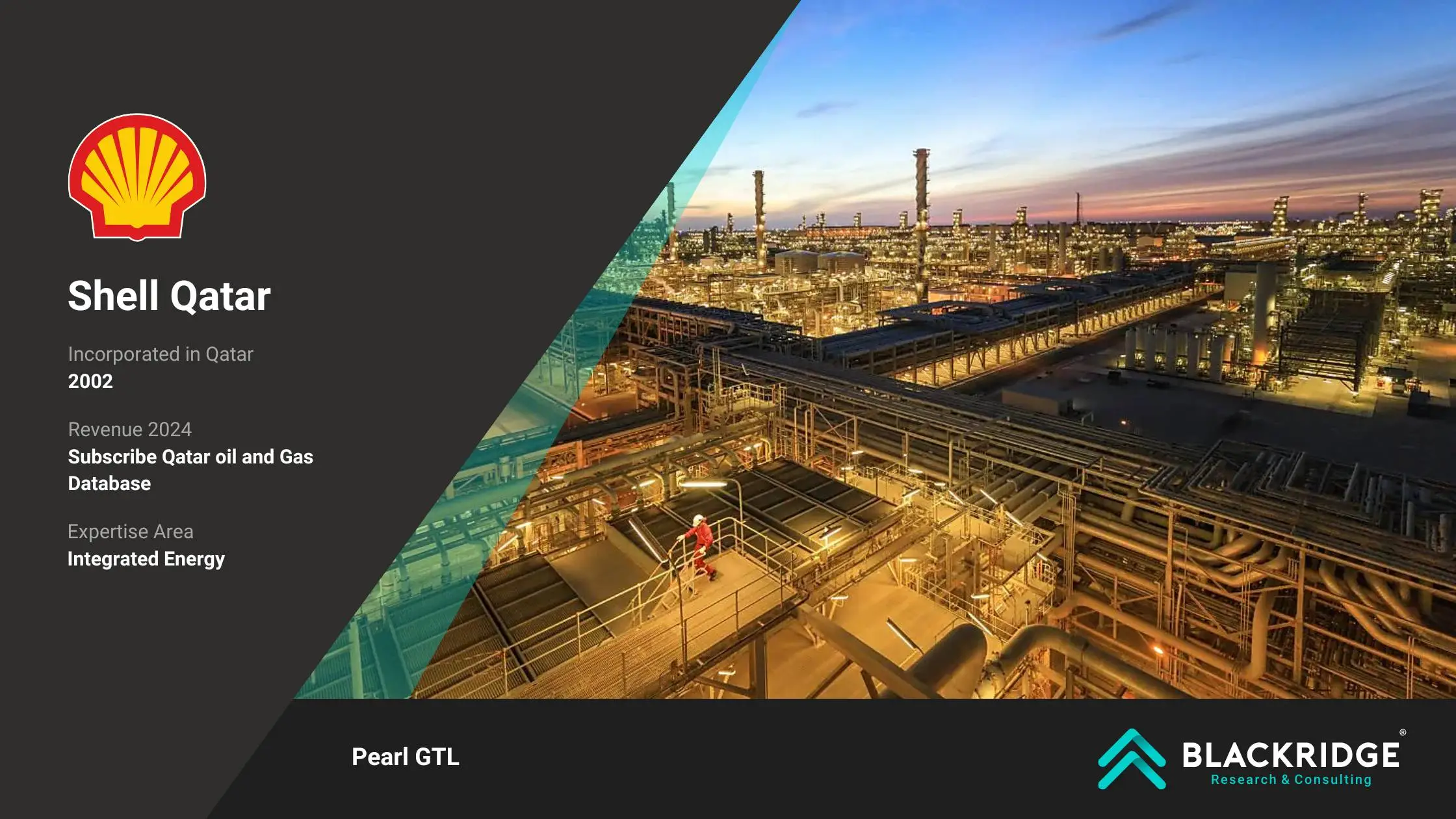
Shell is one of the largest international oil and gas companies in Qatar’s energy sector, having invested over USD 20 billion since 2006. As the largest foreign partner in the country, Shell works closely with QatarEnergy across various strategic projects. Shell’s long-term partnership in Qatar spans upstream, downstream, LNG, GTL, and maritime operations.
Pearl GTL
Developed jointly with QatarEnergy, Pearl Gas-to-Liquids (GTL) is the world’s largest GTL plant and one of the most complex energy projects ever executed. The project uses Shell's GTL technology, converting natural gas from Qatar’s North Field into high-quality liquid fuels and products. Pearl GTL integrates the full gas value chain, from offshore gas production to onshore processing and refining.
Qatargas 4
Qatargas 4 is a fully integrated LNG development, with Shell holding a 30% stake and QatarEnergy owning the remaining 70%. It includes offshore gas production, subsea pipelines, and onshore liquefaction facilities (Train 7), with a production capacity of 7.8 mtpa of LNG and 70,000 barrels per day of natural gas liquids.
Operated in conjunction with Qatargas 3, the project shares facilities to increase reliability and reduce operational costs. Qatargas 4 began production in January 2011, with its first LNG cargo delivered the following month.
Strategic Maritime Partnership with Nakilat
Shell also plays a key role in Qatar’s LNG transportation sector. Under a 25-year Master Services Agreement initiated in 2006, Shell was appointed as the shipping and maritime services provider for Nakilat’s fleet of LNG carriers.
Shell’s responsibilities include recruitment, training, and operational management of 25 LNG vessels, with a long-term plan to transfer full operational control to Nakilat, helping to develop Qatar’s domestic maritime expertise.
International Collaboration with QatarEnergy
Beyond Qatar’s borders, Shell and QatarEnergy International have forged a strategic global partnership to pursue joint upstream and downstream projects. This includes a 23% stake in Shell’s offshore oil asset BC-10 (Parque das Conchas) in Brazil and joint assessments of large-scale petrochemical projects in China.
ConocoPhillips Qatar
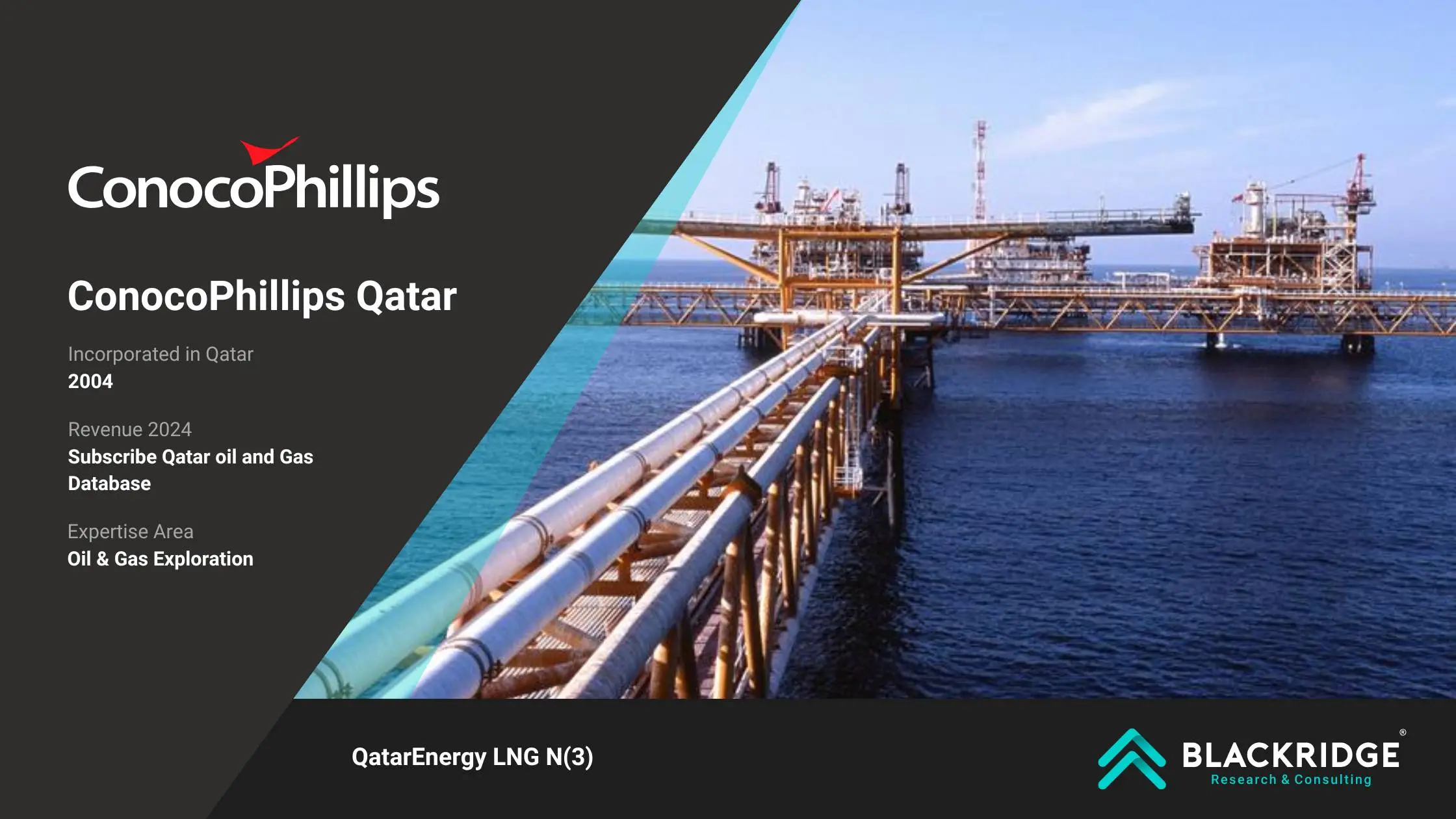
ConocoPhillips Qatar Ltd. is one of the largest international energy companies in Qatar, having development and contractual engagements across the Middle East and North Africa. A subsidiary of ConocoPhillips, one of the world’s largest independent exploration and production (E&P) companies, it leverages the parent company’s global expertise to support Qatar’s energy ambitions.
ConocoPhillips’ partnership with QatarEnergy highlights a strong alignment of technical excellence, strong asset portfolios, and shared goals to support the global energy transition.
QatarEnergy LNG N(3)
In 2003, ConocoPhillips Qatar Ltd. and QatarEnergy signed a Heads of Agreement to develop QatarEnergy LNG N(3), a large-scale LNG project in Ras Laffan Industrial City. ConocoPhillips holds a 30% stake in this fully integrated project, which includes both upstream gas production from the North Field and a 7.8 MTPA LNG processing facility.
The project produces around 270 MBOED gross, with roughly 75% natural gas and 25% LPG and condensate. LNG shipments began in 2010, with full production achieved in 2011. To improve efficiency and reduce costs, QatarEnergy LNG N(3) was developed jointly with QatarEnergy LNG N(4), sharing infrastructure including offshore blocks and twin LNG trains.
North Field Expansion Project
In 2022, ConocoPhillips deepened its partnership with QatarEnergy by participating in two major phases of the North Field Expansion Project: North Field East (NFE) and North Field South (NFS). Together, these projects will increase global LNG supply by 48 MTPA.
ConocoPhillips Qatar B.V. acquired a 25% interest in QatarEnergy LNG NFE(4), which itself holds a 12.5% stake in the 32 MTPA NFE project. In 2023, the company also secured a 25% interest in QatarEnergy LNG NFS(3), which holds a 25% stake in the 16 MTPA NFS project.
ExxonMobil Qatar Ltd
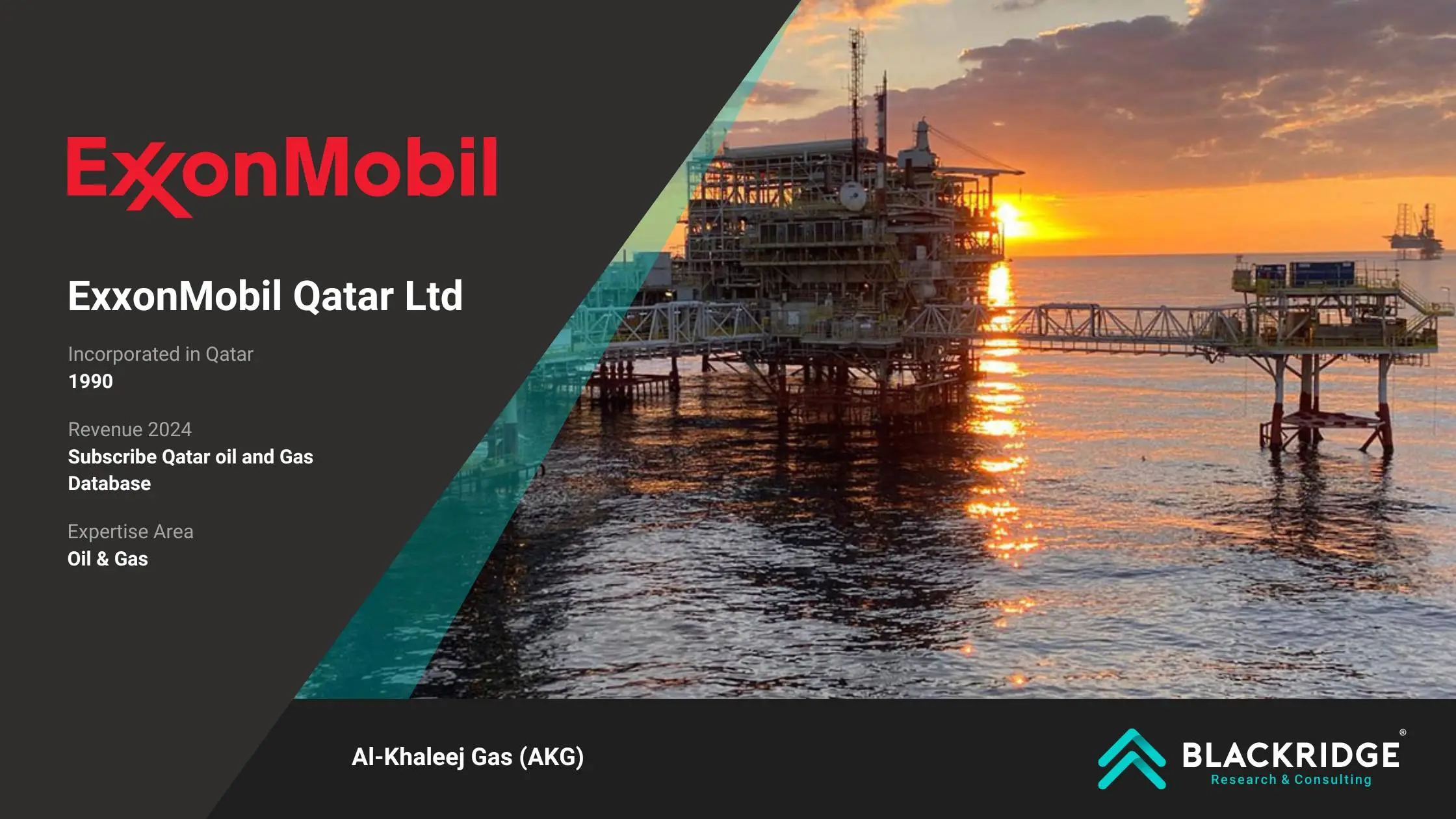
ExxonMobil has been a strategic energy partner to the State of Qatar for over 50 years, with a presence that spans the LNG value chain and domestic gas supply. The company is the largest international partner in Qatar’s LNG sector, with stakes in nine LNG trains and 27 of the world’s largest LNG carriers.
The company is also the only foreign participant in Qatar’s domestic gas projects, and a key contributor to research, development, and community outreach aligned with Qatar National Vision 2030.
LNG Ventures
ExxonMobil plays a critical role in Qatar’s global LNG leadership. In partnership with QatarEnergy, the company has developed and operated some of the largest LNG projects globally:
Interest in 9 of Qatar’s 14 LNG trains
Partner in QatarEnergy LNG N(1) (formerly Qatargas 1) until 2021
Partner in LNG ventures globally, including the South Hook LNG terminal in the UK and Golden Pass LNG in the U.S.
Co-developed Qatar’s largest condensate refinery
Domestic Gas Projects
ExxonMobil is the sole international company involved in Qatar’s domestic gas supply.
Al-Khaleej Gas (AKG)
Launched in 2000, AKG was designed to utilize North Field reserves for domestic gas supply, supporting industrial development and national growth.
Barzan Gas
The Barzan Gas Project further extends ExxonMobil’s domestic impact. Operated by QatarEnergy LNG, this venture supplies gas to the local market and produces essential byproducts. ExxonMobil holds a 7% share, with QatarEnergy owning 93%.
International Projects
ExxonMobil and QatarEnergy collaborate on global LNG infrastructure, including:
South Hook LNG Terminal, Wales (LNG receiving)
Golden Pass LNG Export Facility, Texas, USA
Additional partnerships in Brazil, Cyprus, Argentina, Egypt, and Canada
TotalEnergies EP Qatar
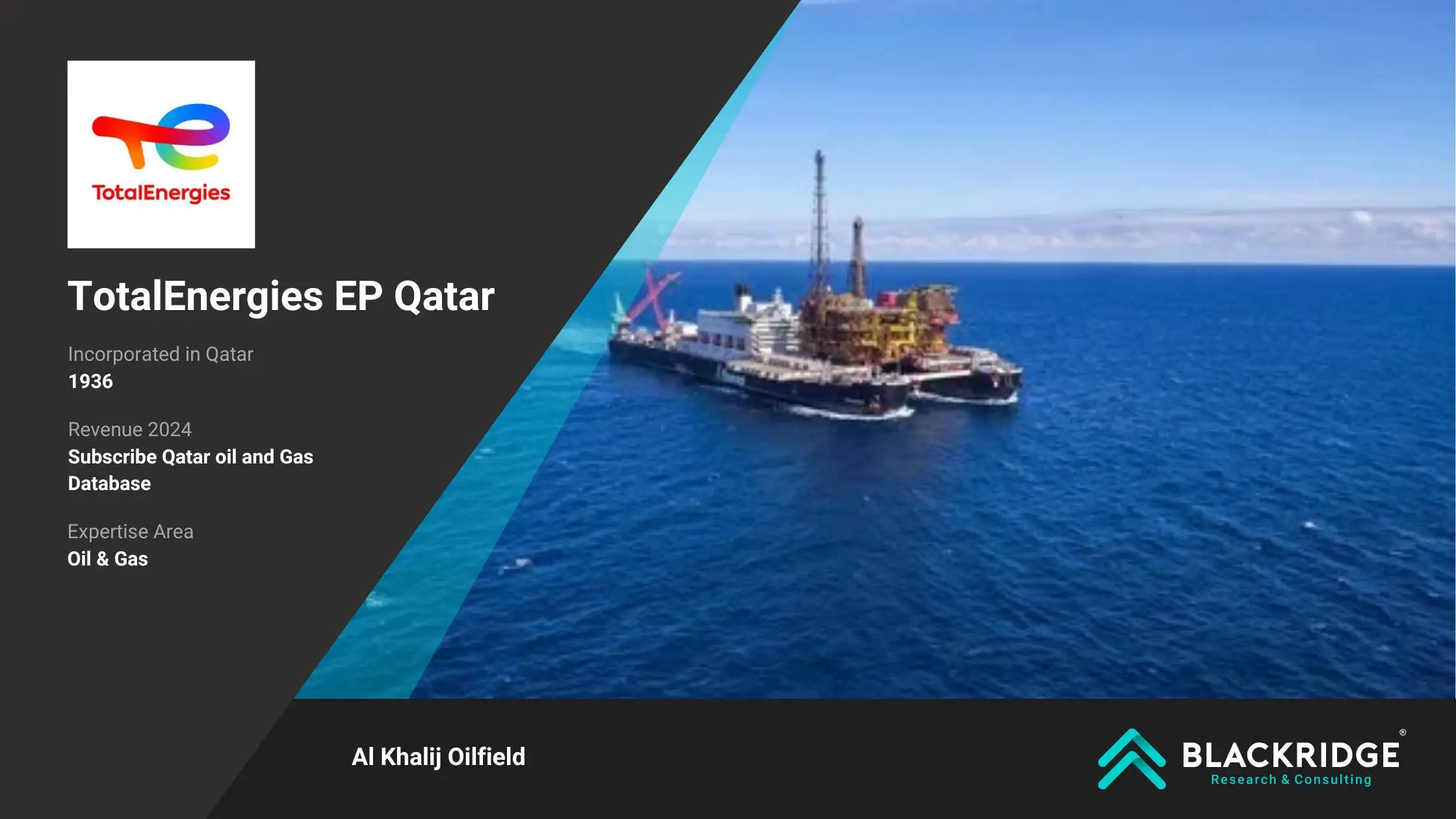
TotalEnergies has been a committed energy partner to Qatar for nearly nine decades. The oil and gas giants build a diverse portfolio that spans the full energy value chain from oil and gas exploration and production to refining, petrochemicals, lubricants marketing, and renewable energies.
Since its establishment in Qatar in 1936, TotalEnergies has continuously supported the country’s strategic objectives through innovation, operational excellence, and sustainability.
Exploration & Production
TotalEnergies holds a leading position in Qatar’s upstream oil and gas sector:
Al Khalij Oilfield
Discovered in 1991, the Al Khalij offshore field is operated by TotalEnergies under a production sharing agreement with QatarEnergy.
Al Shaheen Oilfield
TotalEnergies holds a significant interest in the concession for the Al Shaheen field, one of Qatar’s largest offshore oil developments, operated by North Oil Company.
QatarEnergy LNG (N2)
A founding partner of QatarEnergy LNG (formerly Qatargas), TotalEnergies holds a 16.7% stake in Train 5 of the QatarEnergy LNG N(2) project, contributing to Qatar’s position as the world’s leading LNG exporter.
Dolphin Energy
TotalEnergies owns a 24.5% share in Dolphin Energy, a key regional project transporting natural gas from Qatar to the UAE and Oman.
North Field Expansion Projects
In 2022, TotalEnergies became QatarEnergy’s first international partner in the landmark North Field expansion:
North Field East (NFE): 6.25% participating interest in this 32 MTPA LNG development
North Field South (NFS): 9.375% participating interest in this 16 MTPA LNG development
These projects will significantly increase Qatar’s LNG export capacity and bolster global energy security.
Refining & Chemicals
TotalEnergies is a long-standing player in Qatar’s downstream sector through its participation in four major joint ventures:
QAPCO (Qatar Petrochemical Company) – 20% shareholding
Qatofin – A key asset in the valorization of North Field gas
RLOC (Ras Laffan Olefins Company)
Laffan Refineries
The company joined Qatar’s first chemicals JV in 1974 and continues to support value-added petrochemical development in the country.
Qatar's Oil and Gas Market: Strategic Expansion and Global Leadership
Qatar's oil and gas industry stands at a transformative point in 2025. This growth is fueled by expansive infrastructure developments and strategic global partnerships. The centerpiece of this transformation is the North Field East (NFE) expansion project, which will increase Qatar's LNG production capacity from 77 million tonnes per annum (MTPA) to 126 MTPA by 2027.
Alongside these domestic advancements, Qatar is increasing its global presence through long-term LNG supply agreements across Asia and Europe, aiming to supply 40% of all new LNG volumes worldwide by 2029.
Upcoming Oil and Gas Projects in Qatar
Let’s explore some of the significant oil and gas projects in Qatar:
North Field Expansion Initiative
The North Field East expansion is Qatar's largest energy infrastructure project to date. Production is set to commence in mid-2026, with additional trains becoming operational in phases, reaching 126 MTPA by 2027. Discovered in 1971, the North Field holds about 900 trillion cubic feet of recoverable natural gas, roughly 10% of the world's known reserves.
The expansion involves comprehensive offshore and onshore developments, including new platforms, subsea pipelines, and advanced processing facilities at Ras Laffan Industrial City.
Al Shaheen Oil Field Operations
Located 180 kilometers north of Doha, Al Shaheen is Qatar's largest offshore oil field, producing 300,000 barrels per day and accounting for nearly half of the nation’s oil output. Operated by North Oil Company, a joint venture between QatarEnergy (70%) and TotalEnergies (30%), the field includes 33 platforms and over 300 wells.
In June 2024, QatarEnergy announced contract packages related to the expansion of the Al-Shaheen field. The Engineering, Procurement, and Construction (EPC) contract packages related to the expansion of the Al-Shaheen field, with varying scopes of work, are estimated to value more than USD 6 billion.
Barzan Gas Project
The USD 10.3 billion Barzan Gas Project, a joint venture between Qatar Gas and ExxonMobil, adds significant capacity to Qatar's domestic gas supply. Located 80 kilometers off Ras Laffan, the development features offshore platforms, 300 kilometers of subsea pipelines, and advanced onshore processing facilities.
Production is divided into three phases, collectively delivering up to 6.2 billion cubic feet per day. This gas supports local power generation, water desalination, and industrial development, aligning with Qatar National Vision 2030.
Global Partnerships Fueling Market Reach
Strategic Ties in Asia
Qatar has secured major LNG supply deals across Asia, including a five-year agreement with India's GAIL starting in 2025. Under this deal, QatarEnergy Trading will supply one cargo per month at competitive pricing linked to Henry Hub indices.
These long-term contracts enhance energy security for countries like India, where natural gas plays a growing role in the national energy mix, and further entrench Qatar's position as Asia's top LNG supplier.
Expanding European Energy Security
In Europe, Qatar is emerging as a key energy partner amid shifting geopolitical dynamics. Hungary has signed a framework agreement for LNG deliveries starting in 2027, while Italy’s Eni and France’s TotalEnergies have committed to 27-year LNG contracts with QatarEnergy. Germany has also inked cooperation deals, cementing Qatar’s role as a cornerstone of Europe’s energy diversification strategy.
These long-term deals offer Qatar stable revenue and significant influence in the European energy landscape.
Infrastructure Developments Transforming the Sector
LNG Production Expansion
QatarEnergy LNG's current operations include advanced production facilities at Ras Laffan, with multiple trains producing a total of 77 MTPA. Key infrastructure includes 20 production wells, massive onshore storage, and three LNG berths. Trains 4 and 5 each have capacities of 7.8 MTPA and employ the latest gas processing technologies.
The expansion to 126 MTPA by 2027 and a longer-term goal of 142 MTPA will redefine global LNG supply capabilities.
International Ventures: Golden Pass LNG
The Golden Pass LNG terminal in Texas showcases Qatar's growing presence in the U.S. energy market. A joint venture with ExxonMobil, the facility will have a capacity of over 18 MTPA. Despite construction delays caused by contractor challenges, work continues under McDermott and Chiyoda.
This project allows Qatar to access North American markets, leverage flexible exports, and enhance global market resilience.
Future Outlook: Leadership Through Innovation
According to Blackridge’s Global Oil and Gas market outlook, Qatar’s energy sector is undergoing a rapid transformation, with production capacity set to grow by 84% by 2027. The phased rollout of the North Field expansion ensures steady market integration and protects against price volatility. Long-term contracts across Asia and Europe provide revenue predictability and geopolitical leverage.
Moreover, Qatar is investing in technological innovation to maximize efficiency and minimize environmental impact. The use of proprietary processing technologies and the expansion of a high-capacity LNG shipping fleet (including Q-Flex and Q-Max vessels) reflect a fully integrated strategy that encompasses exploration, production, and global delivery.
Conclusion
Qatar’s oil and gas sector is the cornerstone of its economy. With projects like the North Field East expansion, world-class facilities, and long-term international partnerships, Qatar is on track to dominate LNG supply through 2029 and beyond.
The country’s collaboration with leading international oil and gas companies, including QatarEnergy, TotalEnergies, ExxonMobil, and Shell, underscores its commitment to energy security, innovation, and sustainable growth. As demand for clean and reliable energy rises, Qatar’s integrated approach ensures its continued leadership in the global oil and gas industry.
Find the Latest Oil & Gas Production Projects in MENA (Middle East and North Africa) Region with Ease.
Looking for trusted insights into the latest oil and gas production projects in MENA? Blackridge Research's Global Project Tracking (GPT) platform provides everything you need, all in one place:
Real-Time Data: Monitor upcoming refinery projects, tenders, and contract awards
Early-Stage Insights: Identify business opportunities ahead of the competition
Comprehensive Details: Access project scope, capacity, funding, timelines, and key contacts
Seamless Navigation: Explore refinery projects across all development phases with ease
Book a Free Demo today and unlock your next big opportunity!







Leave a Comment
We love hearing from our readers and value your feedback. If you have any questions or comments about our content, feel free to leave a comment below.
We read every comment and do our best to respond to them all.